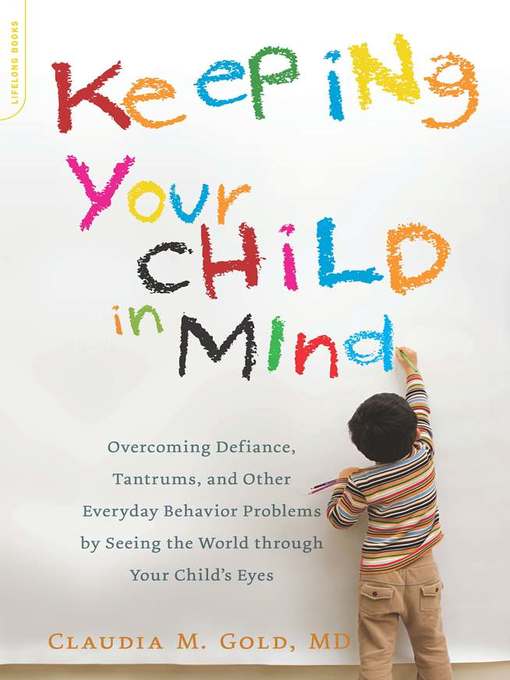
Keeping Your Child in Mind
Overcoming Defiance, Tantrums, and Other Everyday Behavior Problems by Seeing the World through Your
کتاب های مرتبط
- اطلاعات
- نقد و بررسی
- دیدگاه کاربران
نقد و بررسی

August 1, 2011
Gold, a behavioral pediatrician in Great Barrington, Mass., and Boston Globe columnist on children's mental health, focuses not on what to do but "how to be" with a child. Gold guides parents to "hold the child in mind," which means that the parent strives to understand the child's behavior in terms of the child's level of development, empathizes with the child's feelings, and helps the child to contain and regulate his or her emotions. It's also crucial that the parent remain calm and not become overwhelmed. Gold covers a range of issues from birth to adolescence, using vignettes and composites culled from her own practice to illustrate how holding a child in mind works (when faced with a colicky baby, Gold encourages parents to tolerate, contain, and be with the baby's distress). She addresses helping a baby learn how to sleep on its own, covers limit-setting for toddlers, and reveals how to use empathy in dealing with teenagers. Rather than behavior problems that need to be fixed, the author approaches such issues as excessive crying, sleep problems, and explosive behavior from a developmental perspective. She also helps parents examine past experiences and change negative family patterns that can be passed from generation to generation. Though not a quick fix, readers seeking a comprehensive approach to child-rearing will welcome this thoughtful book.

September 15, 2011
A behavioral pediatrician reflects on the importance of understanding problems from a child's perspective, with emphasis on "right brain" communication.
Based on composites of patients as well as personal mothering experiences, Gold introduces scenarios spanning the newborn to teenage years that are often resolved by examining context, underlying emotions and events in the parents' lives rather than by fixating on controlling behavior. What matters is understanding "how to be" with one's child rather than figuring out "what to do"; considering the meaning behind actions before reacting; and formulating healthy responses that acknowledge a child's real needs while setting respectful boundaries. Gold readily admits this process will not come easily for everyone; it is most effective when primary caregivers have a strong support system of their own. The intersperses anecdotes on topics including colic, sleep management, attachment, separation anxiety, discipline and the development of individual identities with well-known studies from the fields of psychoanalysis, neuroscience and behavioral genetics (among others), citing John Bowlby's attachment theory and Donald Wood Winnicott's idea of the good-enough mother. Though parents may have experienced difficulty in their own childhoods, which could influence their current perspectives, they do not have to fall into the same traps as their own parents, and can learn more nurturing methods. Gold's simple, direct assurances, while not groundbreaking, would be especially useful for new parents in search of holistic guidance.
A panoply of hypothetical situations offering broad-based solutions.
(COPYRIGHT (2011) KIRKUS REVIEWS/NIELSEN BUSINESS MEDIA, INC. ALL RIGHTS RESERVED.)

























دیدگاه کاربران